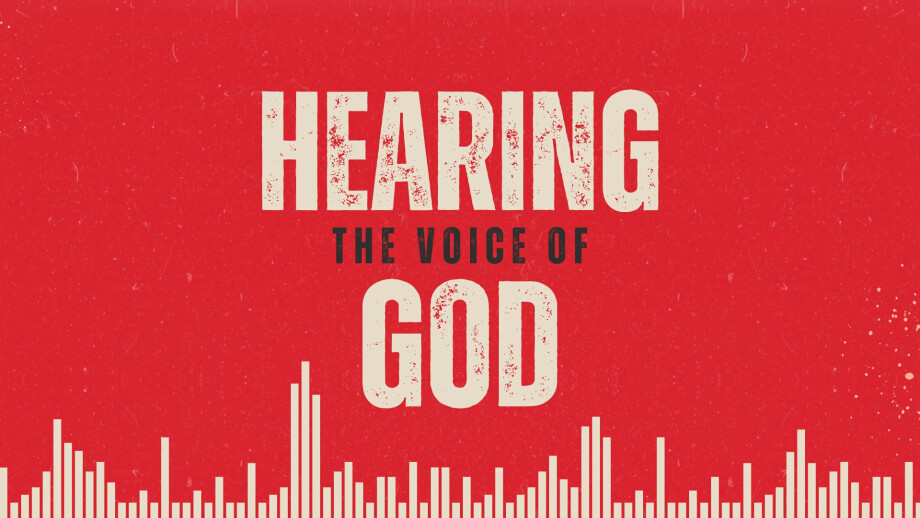Life Groups Curriculum

Communication with the divine looks simple until you try to live it. Then you realize it’s more like tuning an old radio. Static everywhere. A signal fighting through. And sometimes the broadcast is jazz you didn’t request but definitely need.
What follows is a 9-week journey, beginning the first week of February and continuing through the annual 21-day consecration leading into Easter. The focus is on communication with God. Learning how to speak to Him, recognize how He speaks back, listen with intention, discern His voice, and walk out what you’ve heard in real, obedient action.
"Communication With God Is Relationship, Not Ritual"
Week 1 | Feb 4th - ALL IN SESSION
- Scriptures: Genesis 3:8, Psalm 139; John 10:14–15; Revelation 3:20
- Core idea: God initiates relationship, calls us by name, and desires real conversation rather than formula.
- Practice: Guided prayer focusing on honesty and transparency rather than polished “church language.”
- Between weeks: Journal one conversation with God each day, even if brief. Write it the way you’d talk to a close friend.
"The Language of Prayer"
Week 2 | Feb 9th - 14th
- Scriptures: Matthew 6:5-13; Philippians 4:6-7; 1 Thessalonians 5:17
- Core idea: Request, confession, gratitude, and surrender are all communication modes.
- Practice: Group prayer warm-ups using ACTS (Adoration, Confession, Thanksgiving, Supplication) and freeflow.
- Between weeks: Pray for ten minutes daily without asking for anything. Aim for gratitude and conversation.
"God Speaks, but How?"
Week 3 | Feb 16th - 21st
- Scriptures: Hebrews 1:1-2; John 16:13-15; Acts 10; Numbers 12:6
- Core idea: God communicates through Scripture, inner nudges, peace, conviction, dreams, wise counsel, and sometimes disruption. Modern believers often expect a megaphone and miss the whisper.
- Practice: Testimonies within the group about experiences of hearing or sensing God’s guidance.
- Between weeks: Record one moment daily where you sensed guidance, conviction, or clarity. Don’t analyze yet, just capture data.
"The Role of Scripture as God’s Primary Voice"
Week 4 | Feb 22nd - 28th
- Scriptures: 2 Timothy 3:16-17; Psalm 119; Luke 24:27
- Core idea: God doesn’t contradict himself. Scripture anchors and interprets impressions and experiences.
- Practice: Lectio divina style reading of a passage: slow, reflective, listening for highlights.
- Between weeks: Choose one gospel chapter per day and ask: “What does this tell me about God, and what does God seem to be saying to me today?”
"Listening on Purpose"
Week 5 | Mar 2nd - 7th
- Scriptures: 1 Kings 19:11-13; Mark 1:35; Psalm 46:10
- Core idea: God isn’t usually competing with noise. Silence is a spiritual discipline.
- Practice: Ten minutes of silence followed by reflection.
- Between weeks: Practice two silent listening sessions during the week. Note distractions and insights.
"Preparing for Consecration: Listening as Lifestyle"
Week 6 | Mar 9th - 14th
- Scriptures: Daniel 10:1–3; Joel 2:12–13; Acts 13:2–3; John 10:27
- Core idea: Consecration is not spiritual dieting. It is focused devotion that increases sensitivity and obedience. Fasting, prayer, and restraint clear the noise so the signal gets louder.
- Practice: Teaching on why God often speaks more clearly during seasons of consecration. Group discussion on distractions, habits, and appetites that compete with spiritual attentiveness.
- Between weeks: Each participant defines their consecration commitment: fasting approach, prayer rhythm, scripture focus, journaling plan.
"Listening While Emptying
Week 7 | Mar 15th - 21st
- Scriptures: Psalm 46:10; Matthew 6:16–18; Isaiah 58:6
- Emphasis: The first phase of consecration is detox. Physical, emotional, and spiritual noise surfaces once distractions are removed. God often speaks through conviction, exposure, and recalibration.
- Group check-in:
• What has been hardest to silence so far?
• What does God seems to be highlighting rather than solving?
"Discerning the Voice of God"
Week 8 | Mar 23rd - 28th
- Scriptures: 1 John 4:1; Colossians 3:15; Proverbs 3:5–6
- Emphasis: During fasting, impressions multiply. Not all of them are God. Discernment protects obedience from emotional impulse.
- Group check-in:
• What patterns or themes are emerging?
• What scriptures keep resurfacing?
"Obedience and Alignment"
Week 9 | Mar 30th - Apr 4th
- Scriptures: James 1:22–25; Genesis 12:1–4; Luke 11:28
- Emphasis: God speaks for movement, not just insight. Consecration culminates in alignment, repentance, course correction, and renewed commitment.
- Group check-in:
• What God has clearly instructed or confirmed
• What obedience looks like after the consecration ends
